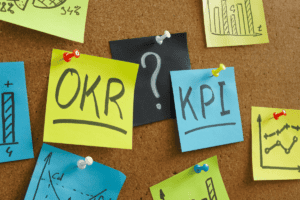The Evolving Landscape of Project Management in Remote, Cross-Cultural, Global Environments
Rise of the Virtual Workspace: Breaking the Boundaries
The emergence of remote work has revolutionized the traditional concept of project management. No longer confined by physical office spaces and geographical limitations, teams can now collaborate from different corners of the world. This paradigm shift brings new opportunities and challenges that require adaptability and innovative thinking.
In a remote, cross-cultural, global environment, project managers must navigate through diverse time zones, cultural differences, and technological nuances. Diversity and Inclusion in Remote Project Management is like unraveling a complex puzzle; you need to embrace flexibility as your new mantra.
Virtual Tools: The Unsung Heroes
To thrive in this evolving landscape, project managers must harness the power of technology. Virtual collaboration tools have become invaluable assets for efficient remote project management.
From video conferencing platforms to project management software, these tools bridge physical distances and enable seamless communication among team members in various time zones. Embracing such tools is not just a convenience—it is an absolute necessity to thrive in today’s digital era.
The Importance of Diversity and Inclusion in Project Teams
Diversity is not merely ticking boxes on a demographic checklist; it goes far beyond that superficial notion. In a truly diverse team, individuals bring unique perspectives based on their cultural backgrounds, experiences, and expertise.
This rich tapestry of insights fosters creativity and innovation within projects by challenging conventional thinking patterns. Inclusion complements diversity by creating an environment where every team member feels valued and empowered to contribute fully.
When everyone’s ideas are respected and acknowledged regardless of their rank or background, individuals feel safe to express their authentic selves without fear of judgment or prejudice. An inclusive culture nurtures collaboration where diverse voices are heard with genuine interest rather than being silenced or overshadowed.
the evolving landscape of project management in remote, cross-cultural, global environments demands a shift in mindset and approach. Embracing technology, leveraging diversity, and fostering inclusion are not just buzzwords; they are essential for the success of modern projects.
It’s time we break free from traditional paradigms and embrace the limitless potential of diverse and inclusive project teams. Only then can we truly harness the power of global collaboration to drive innovation and achieve remarkable results.
Understanding Diversity and Inclusion
Defining diversity beyond demographics: embracing different perspectives, experiences, and backgrounds
Diversity is not just about ticking boxes based on gender, race, or age. It goes beyond superficial characteristics; true diversity lies in the rich tapestry of perspectives, experiences, and backgrounds that individuals bring to the table. In our increasingly interconnected world, a diverse project management team can offer a multitude of fresh ideas and innovative approaches that can propel organizations forward.
By embracing different perspectives, we open ourselves up to endless possibilities. Imagine a team where individuals from various cultural backgrounds collaborate harmoniously.
Each member brings their unique lens through which they view the world, leading to a treasure trove of insights for problem-solving and decision-making. This diversity of thought is essential in tackling complex challenges that require out-of-the-box thinking.
The significance of inclusion: creating a sense of belonging and psychological safety
Inclusion is the key ingredient that transforms diversity from being mere representation into meaningful participation. It is not enough to have diverse team members if they do not feel valued or included in the project’s processes and discussions.
Inclusive environments foster a sense of belonging where every individual’s voice is heard and respected. When people feel psychologically safe within their teams, they are more likely to contribute wholeheartedly without fear of judgment or retribution for sharing unconventional ideas or opinions.
This sense of safety encourages risk-taking and fosters an environment conducive to creativity and innovation. Moreover, when individuals are included authentically, they develop stronger bonds with their colleagues, leading to increased morale and overall satisfaction within the team.
Understanding diversity requires going beyond surface-level characteristics by acknowledging the value that different perspectives bring to project management teams. Inclusion plays an equally critical role by ensuring that all team members feel a sense of belonging and psychological safety within their working environment.
The combination of diversity and inclusion creates a fertile ground for creativity, innovation, and ultimately, the success of projects in remote, cross-cultural, global environments. So let’s embrace true diversity and make inclusion a top priority in our project management practices.
Challenges in Remote Project Management
Overcoming Communication Barriers across Time Zones and Cultural Differences
The Symphony of Virtual Synchronicity. Ah, the joys of managing projects remotely!
While technology has expanded our horizons and connected us across continents, it has also birthed a symphony of communication challenges. Time zones become our frenemies, as we struggle to schedule meetings that don’t leave anyone sleep-deprived or yawning in the middle of the night.
And let’s not forget the cultural differences that add a delicious layer of complexity to our daily interactions. To overcome these barriers, project managers must orchestrate a delicate balance between flexibility and structure.
It starts with embracing tools like project management software that allow for seamless collaboration across time zones. By providing a centralized platform for task assignments, progress tracking, and real-time updates, teams can work together harmoniously despite their geographical disparities.
Utilizing Technology for Effective Virtual Collaboration
In this era of digital transformation, technology can be both your loyal dance partner or an unruly distraction that ruins your rhythm. When it comes to remote project management, harnessing the right tools is vital for effective virtual collaboration.
Investing in video conferencing solutions with features like screen sharing and interactive whiteboards enables teams to engage in dynamic discussions that mimic face-to-face interactions. These platforms eradicate the distance barrier by allowing project members to see each other’s facial expressions and body language.
Another crucial aspect is using instant messaging applications like Slack or Microsoft Teams to promote quick exchanges without inundating everyone’s inbox with endless email threads. These platforms facilitate real-time communication within teams while maintaining an organized flow of information.
Implementing Cross-Cultural Communication Strategies
Managing cross-cultural communication takes finesse akin to a master chef creating the perfect fusion dish.
Each team member brings their unique cultural flavors and communication styles to the table, and it is our responsibility as project managers to craft an environment where understanding and collaboration can flourish. One powerful strategy is to promote active listening and encourage team members to voice their perspectives, ensuring that no voice is drowned out in the sea of diversity.
Establishing clear communication guidelines that account for cultural nuances, such as using plain language or avoiding idiomatic expressions, fosters understanding among diverse team members. Cultural sensitivity training also plays a pivotal role in cultivating an inclusive remote project management culture.
By educating teams about different cultures’ customs, norms, and communication preferences, we can mitigate misunderstandings and build bridges of empathy. Remote project management presents a unique set of challenges when it comes to effective communication across time zones and cultural differences.
However, with the right tools at our disposal and a commitment to fostering inclusivity and understanding within our teams, these hurdles can be overcome. It’s time we embrace this digital symphony of collaboration possibilities while celebrating the diverse voices that make up our virtual orchestras.
Leveraging Diversity for Innovation and Creativity
Embracing Diverse Perspectives: The Catalyst for Innovation
In the realm of project management, diversity is about unlocking the potential of varied perspectives, experiences, and backgrounds to fuel innovation. It is essential to recognize that homogeneity breeds monotony and stifles the creative process.
By embracing diverse perspectives, project teams can tap into a wellspring of fresh ideas and unique insights. When individuals from different cultural backgrounds come together to solve problems, they bring with them a kaleidoscope of approaches and ways of thinking.
This rich tapestry of diversity allows for the cross-pollination of ideas, fostering an environment that nurtures innovation. By fostering an inclusive atmosphere where diverse voices are valued and respected, project managers can create an environment that encourages individuals to contribute their unique viewpoints fearlessly.
Brainstorming with Cultural Nuances: A Gateway to Novel Solutions
Traditional brainstorming sessions often suffer from a lack of creativity due to inherent biases shaped by dominant cultures. To truly leverage diversity in problem-solving processes, project managers must promote brainstorming techniques that embrace cultural nuances. This means creating an environment where all team members feel comfortable expressing their thoughts without fear of judgment or dismissal.
Encouraging open dialogue is crucial in these instances as it allows team members to share their culturally influenced perspectives freely. By incorporating diverse opinions during brainstorming sessions, we can uncover alternative viewpoints on challenges and identify innovative solutions that may have been overlooked otherwise.
Furthermore, it is essential for project managers to understand that cultural differences impact communication styles and approaches towards problem-solving. Being mindful of these nuances enables leaders to adapt their facilitation techniques accordingly, ensuring everyone’s voices are heard loud and clear.
Incorporating Diverse Voices: A Pathway Towards Informed Decisions
Inclusive decision-making is not just a buzzword; it is a pragmatic approach that leads to better outcomes. When project teams include diverse voices in the decision-making process, they benefit from the collective wisdom and perspective of individuals with unique backgrounds. By incorporating diverse voices, project managers ensure that decisions are not made solely based on the perspectives of a select few or limited to a narrow worldview.
This broader range of insights helps identify blind spots, mitigates risks, and enhances the overall quality of decisions. However, it is important to note that simply having diverse representation does not automatically guarantee inclusive decision-making.
Leaders must actively create an environment where everyone feels empowered to contribute their ideas without fear of marginalization or tokenism. Only by valuing and respecting each individual’s input can project teams truly harness the power of diversity in making informed decisions.
Leveraging diversity for innovation and creativity requires embracing different perspectives, promoting brainstorming techniques that embrace cultural nuances, and incorporating diverse voices in decision-making processes. By creating an inclusive environment where every team member feels valued and respected, project managers can unlock the true potential of diversity within their teams.
It is through this integration of varied viewpoints that novel solutions are discovered and innovative ideas come to fruition. So let us cast aside our biases, foster open dialogue, and embrace diversity as the driving force for advancement in our projects.
Building Inclusive Project Teams
Establishing a culture of respect, empathy, and understanding within remote teams
Creating an inclusive project team is not just about ticking boxes on a diversity checklist; it requires a fundamental shift in mindset. Remote teams, especially those operating in cross-cultural environments, must prioritize respect, empathy, and understanding as the building blocks of their interactions. Each team member brings their unique experiences and perspectives to the project, and it is important to recognize and value this diversity.
To establish a culture of respect, leaders should foster an environment where everyone feels heard and valued. Encourage open dialogue and active listening among team members.
Create opportunities for individuals to share their thoughts and opinions without fear of judgment or ridicule. Remote collaboration tools like video conferences can be leveraged to promote inclusivity by allowing participants to read non-verbal cues such as facial expressions.
Training team members on unconscious bias awareness
Unconscious bias can unconsciously seep into our decision-making processes, hindering diversity and inclusion efforts within project teams. It is essential to provide training sessions on unconscious bias awareness for all team members.
By making individuals aware of their biases, they can actively work towards overcoming them. Such training should delve into various biases that may exist regarding gender, race/ethnicity, age, religion, or any other characteristic that can influence judgment.
The goal is not to shame individuals but rather provide education so they can recognize when biases arise and consciously challenge them. By cultivating self-awareness among team members through such training programs, we take significant strides towards an inclusive mindset.
Implementing inclusive language practices
Language plays a powerful role in shaping our perceptions and interactions with others. In order to foster inclusivity within remote project teams, it is crucial to implement inclusive language practices across all communication channels—be it emails, video conferences, or project management software.
Leaders can start by encouraging the use of gender-neutral language when referring to team members or professionals in general. Additionally, avoid assumptions based on cultural backgrounds or personal beliefs.
Promote the use of inclusive pronouns and encourage team members to introduce themselves with their preferred pronouns. By normalizing these practices, we create a safe and welcoming environment for all individuals within the team.
Building inclusive project teams in remote, cross-cultural environments requires intentional effort and a commitment to change. Establishing a culture of respect, empathy, and understanding serves as the foundation for fostering inclusivity within teams.
By training team members on unconscious bias awareness and implementing inclusive language practices, we actively dismantle barriers that hinder diversity and create an environment where everyone can contribute their best ideas and feel valued. Together, let us champion diversity and inclusion in project management!
Nurturing Cross-Cultural Competence
Developing cultural intelligence among project managers and team members
In today’s globalized world, project managers must recognize the immense value that diversity brings to their teams. It is not enough to simply have a diverse group; it is crucial to foster cultural intelligence among project managers and team members.
Cultural intelligence goes beyond tolerance or surface-level understanding; it involves deep empathy and appreciation for different cultures. To develop cultural intelligence, project managers should encourage their teams to actively seek out opportunities to learn about other cultures.
Whether through reading, attending cultural events, or engaging in conversations with people from diverse backgrounds, this ongoing education will broaden perspectives and build a foundation of mutual respect. By emphasizing the importance of cultural understanding, project managers can create an environment where team members embrace the melting pot of cultures rather than merely coexist within it.
Exploring cultural norms, values, and customs to foster understanding
One cannot truly understand a culture without delving into its norms, values, and customs. Project managers should encourage their team members to go beyond superficial knowledge by seeking out authentic experiences that expose them to diverse ways of thinking and behaving.
By exploring cultural norms such as communication styles, decision-making processes, or even concepts of time management across different cultures, team members can learn how these factors influence work dynamics and adapt accordingly. Understanding values such as collectivism versus individualism or hierarchical structures versus flat organizations allows for better collaboration within cross-cultural teams.
Furthermore, custom exploration paves the way for embracing traditions or celebrations from different backgrounds. By acknowledging important dates or holidays within different cultures on your projects’ calendars or creating opportunities for intercultural exchanges during team meetings where individuals share stories about their traditions—these actions promote a sense of inclusion and respect that strengthens team cohesion.
Providing intercultural training opportunities
Intercultural training is a powerful tool in nurturing cross-cultural competence. Project managers should invest in training programs and workshops that equip team members with the necessary skills to navigate diverse environments successfully.
Such programs can include sessions on cultural sensitivity, effective communication strategies, and conflict resolution techniques tailored to cross-cultural contexts. These opportunities not only enhance individuals’ understanding of different cultures but also create an environment where the curiosity to learn about others is actively encouraged.
By providing such training, project managers demonstrate their commitment to fostering inclusivity and empowering their team members to be culturally sensitive leaders who can navigate any situation with finesse. Nurturing cross-cultural competence requires project managers to go beyond surface-level diversity.
It involves developing cultural intelligence among team members through active learning, exploring norms and values unique to different cultures, and providing intercultural training opportunities. By embracing these practices, project managers can harness the full potential of their teams in remote, cross-cultural, global environments while fostering a sense of appreciation for cultural diversity—an essential aspect of successful project management in today’s interconnected world.
Creating Opportunities for Collaboration and Networking
Rethinking Virtual Team-Building Activities to Enhance Relationships
In the realm of remote project management, fostering strong relationships and promoting effective collaboration among team members is a constant challenge. The absence of face-to-face interactions makes it crucial to get creative in finding ways to build trust and camaraderie within virtual teams.
Traditional team-building activities may seem outdated or simply ineffective when translated into the digital space, so it’s time to think outside the box. One innovative idea is to embrace gamification as a means of virtual team-building.
By introducing interactive games that stimulate problem-solving, teamwork, and healthy competition, project managers can create an engaging environment where team members can bond while honing their skills. Whether it’s an online escape room challenge or a virtual scavenger hunt, these activities not only bring teammates together but also spark creativity and critical thinking.
Organizing Online Social Events: More Than Just Small Talk
Small talk often gets a bad rap in professional settings, deemed as superficial chatter that distracts from real work. However, in remote project management environments, these seemingly insignificant interactions play a critical role in building relationships and establishing rapport among team members. In order to replicate this organic socialization online, project managers should organize regular online social events that go beyond mundane pleasantries.
These online social events could take various forms based on the interests and preferences of the team members. Virtual happy hours or cocktail mixology classes allow for casual conversations outside work-related matters while providing an opportunity for individuals to showcase their mixology skills (or lack thereof).
Alternatively, themed trivia nights can encourage friendly competition while allowing teammates to learn more about each other’s interests beyond project tasks. These events not only foster bonding but also contribute to overall employee well-being by combating isolation often experienced in remote work environments.
Encouraging Informal Conversations: The Power of Virtual Coffee Breaks
Informal conversations and impromptu interactions are often underestimated in their ability to strengthen team dynamics and boost creativity. In a traditional office setting, water cooler moments and coffee breaks provide opportunities for colleagues to engage in casual discussions, bouncing ideas off each other, or simply venting about their daily frustrations. Regrettably, these organic exchanges are lost when working remotely.
To emulate the communal spirit of coffee breaks in virtual settings, project managers should encourage designated virtual coffee breaks where team members can gather online for informal conversations. This dedicated time allows individuals to connect on a more personal level, share anecdotes from their lives outside work, or discuss non-work-related interests.
By fostering an open and friendly environment through virtual coffee breaks, project managers create space for spontaneous interactions that nurture relationships and ultimately enhance collaboration within remote teams. Building strong relationships within remote teams is not an insurmountable challenge if approached with creativity and intentionality.
By reimagining traditional team-building activities through gamification, organizing online social events that go beyond small talk, and encouraging informal conversations during virtual coffee breaks, project managers can foster a sense of belonging and camaraderie essential for effective collaboration in remote project management environments. Let’s break free from the limitations imposed by physical distance and embrace the limitless potential of technology to bring us closer together as one cohesive team.
Measuring the Impact of Diversity Initiatives
Utilizing metrics to assess the effectiveness of diversity programs
Diversity initiatives are only as effective as the outcomes they produce. In order to evaluate the impact of diversity and inclusion programs in remote, cross-cultural, global project management environments, it is crucial to utilize appropriate metrics. However, we must beware of falling into the trap of simply measuring numbers and percentages without truly understanding their significance.
One metric that can be useful in assessing the effectiveness of diversity initiatives is employee satisfaction surveys. By asking team members about their experiences with diversity and inclusion efforts within their projects, we can gain valuable insights into whether these initiatives are making a positive impact on individuals’ sense of belonging and psychological safety.
Additionally, tracking key performance indicators (KPIs) related to collaboration, innovation, and creativity can provide indications of how diversity efforts contribute to overall project success. Another metric worth considering is employee turnover rates.
If a project team experiences high turnover among individuals from underrepresented groups or diverse backgrounds, this may indicate underlying issues with inclusiveness or cultural sensitivity within the organization. Monitoring turnover rates can highlight potential areas for improvement in fostering an inclusive work environment.
Conclusion: Embracing Data for Meaningful Change
Measuring the impact of diversity initiatives in remote project management environments is crucial for ensuring meaningful progress towards inclusivity and equality. While it may be tempting to rely solely on numerical data such as demographics or representation percentages, it is important to dig deeper and consider qualitative measures as well. Employee satisfaction surveys and turnover rates provide valuable insights into how diversity programs are truly influencing team dynamics and overall project outcomes.
Rather than viewing metrics as burdensome obligations or mere checkboxes on a corporate report card, let us embrace them as tools for driving impactful change. By genuinely analyzing the data collected through these metrics and taking action based on the findings, organizations can create environments that foster diversity, inclusivity, and ultimately, project success.
Remember, meaningful change takes time, effort, and a commitment to continuous improvement. Let’s strive for a future where every project team is an exemplar of diversity and inclusion, celebrating the unique strengths and perspectives each individual brings to the table.
If you liked this article, remember to subscribe to MiamiCloud.com. Connect. Learn. Innovate.









